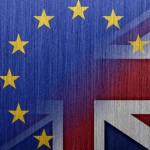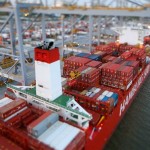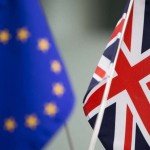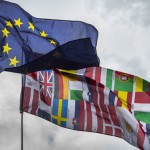What happens next if Britain votes to leave the EU?

The first hours
By the early hours of Friday 24 June, it will be clear if the UK has defied the experts and pollsters by voting to leave the European Union.
If that happens, a shattered David Cameron, his leadership already a matter of speculation, will have no option but to make a statement outside 10 Downing Street saying he will respect the mandate of the British people. The Treasury, Bank of England and the European Central Bank (ECB) will move quickly to roll out well-hidden battle plans to prevent market chaos.
A shocked European political class will find itself grappling with an unprecedented, messy and sprawling divorce that could rumble on for years.
The EU will respond as it does to any crisis, and convene an emergency summit, probably as early as the weekend.
As the morning unfolds it will quickly become clear that although the basic Brexit procedures are set down in law with some clarity, the politics, timeframe and potentially explosive brinkmanship will bring deep uncertainty and new disputes between the Brexiters and Europe.
EU commission officials, for instance, claim the UK will rapidly discover it has put itself in the role of supplicant, and they even talk of throwing the country out on its ear. Jean-Claude Juncker has already warned the UK should remember that deserters are not greeted with open arms.
“It is in our interest to do the divorce as quickly as possible. There’s no appetite for negotiating new terms in the first two years,” one source says.
Others, mainly in the leave campaign, contend that a more stately, considered pace to the divorce is possible. They deny the EU holds all the cards in shaping a new relationship between an independent UK and a jilted Europe.
The weekend (24-26 June)

The high watermark of summer: as the Glastonbury faithful turn their attention to the headliners, and football fans gear up for the knockout phases of the European championships, officials in London and Brussels will be weighing a very different knockout. Rapidly the discussion will move to the processes of Brexit, and the irreversibility of the decision. Only Greenland (on achieving self-rule) and Algeria (on gaining independence from France) have left the European bloc, and the only legal pathway out of the current EU is through article 50, inserted in the 2009 Lisbon treaty. This allows a country two years to negotiate the terms of its exit from the moment it notifies the EU of its intention to leave. A Brexit vote does not represent that formal notification. Those playing for time will argue that six weeks must be allowed for legal challenges to the referendum result, so at the very least it might be best to wait for the result to be immune from legal interference.
But once the notification is triggered, negotiations cannot extend beyond a two-year notice period, unless all remaining EU member states agree to such an extension. It would therefore take just one member state to insist the divorce must happen at the end of the two years. Arguably, and this will be contested, the UK could at some point in the two years reverse its decision to leave. If, for instance, the deal offered by the EU were very poor, nothing in the EU treaty would prevent the UK government going back to a largely pro-remain UK parliament to seek a second referendum.
Week one
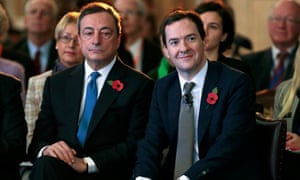
The EU’s instinctive response to a UK Brexit vote will be one of self preservation. An emergency summit is likely to seek the equivalent of the “Draghi moment” when the head of the ECB, Mario Draghi, announced he would do “whatever it takes” to save the euro. With markets in turmoil, and Eurosceptics across Europe emboldened, the European political class will want a joint declaration of a determination to continue, possibly as an even more integrated Europe.
Divisions will start to emerge. Countries with strong ties to the UK such as Malta, Cyprus and Poland may plead for caution. Slovakia, which will hold the presidency of the council in the second half of 2016, is reluctant to see the UK go. The inclination across Brussels will be to treat the UK harshly so Brexit cannot be presented to other sceptical states as a cost-free option. “It will be imperative to prevent the Brexit contagion gripping other countries,” says one EU official. The French and Germans, facing challenges from their own Eurosceptics in 2017 elections, will demand action. They will want to know what kind of future relations with Europe the UK proposes. At issue will be the UK access to the single market and the continuance of the free movement of labour.
Andrew Duff, a former Liberal Democrat MEP, who helped devise article 50, says: “The EU could not allow a seceding state to spin things out for too long. The clause puts most of the cards in the hands of those that stay in.”
By the end of the week, the UK may find itself excluded from some EU meetings as the remaining 27 decide how to structure the withdrawal negotiations, based on proposals from the executive commission.
Week two
Inside the UK, Cameron will either fall on his sword, prompting a leadership contest at a point of economic turmoil, or say he has a duty to negotiate an exit, perhaps staying on until the autumn.
He has said he would immediately trigger article 50 because “the British people would rightly expect that to start straight away”. George Osborne has said that “this is crucially important, the one way the European Union itself has a legal basis to negotiate our exit is to trigger article 50. Article 50 would be triggered immediately and that process would begin.” The trigger would be pulled with a fortnight, Osborne added.
However, Dominic Cummings, the campaign director for Vote Leave, says an immediate move to set article 50 in motion would be “mad and like putting a gun into your mouth and pulling the trigger”.
Meanwhile, Michael Gove claims the remarks by Cameron and Osborne need to be filtered through the prism of the referendum campaign. It is in the interests of Cameron and the commission to play up the risk of a Brexit vote.
In reality, once defeated in the referendum the political authority of the Cameron-Osborne axis will have been blown away. The mantle will have passed to Gove, and to Boris Johnson. Both men have said there is no need to rush to the exit door.
The next few weeks

The shell-shocked 450-strong majority for remain in the House of Commons will have gathered its forces. A consensus will form that it would be best for all sides to take their time.
From Cummings’ point of view, time will be needed over the summer for the EU to admit it is in its self-interest to retain a close trading relationship with the UK. At play will be the UK’s continued membership of the single market, and free movement of EU citizens.
But Agata Gostyńska-Jakubowska of the pro-EU Centre for European Reform says delaying for too long “might be unacceptable for the EU partners”, further eroding goodwill and weakening their negotiating hand. The UK, by extending the agony, would be an unwanted participant in EU meetings.
So politically Britain will not be able to delay in perpetuity, and by the autumn the pressure for an article 50 notification will be overwhelming.
Autumn 2016

Once the article 50 trigger is pulled, the EU council of ministers, now certain that Brexit is happening, will by qualified majority voting agree a negotiation mandate, in the form of directives to the commission.
The full scale of the task facing Whitehall will become clear. The UK will have to renegotiate 80,000 pages of EU agreements, deciding those to be kept in UK law and those to jettison. British officials have said privately that nobody knows how long this would take, but some ministers say it would clog up parliament for years. Greenland, with a population of 55,000, took two years to negotiate its exit.
Brexiters often point to farming or fisheries as relatively easy to negotiate, yet 60% of UK food and drink exports go to the EU and 60% of fish. The EU and Norway spend four months negotiating a fisheries deal for 40 stocks. Yet EU-UK fisheries negotiations would have to contend with 140 stocks.
A senior UK official said: “The honest answer is nobody knows how long this would take and we would all be making it up.”
Winter 2016
One scenario is that the first set of negotiations surrounding withdrawal will be completed inside two years. They will cover issues such as residual EU budget payments to and from Britain, the acquired rights of UK citizens in Europe and the reciprocal rights of EU citizens in the UK, the pensions of British EU civil servants and relocation of EU agencies based in the UK.
However, longer-term issues such as future trade relations, including tariffs, are likely to be dealt with separately.
2017

The negotiations will be grinding on, and the Brexit campaign may find some of its optimism about a new trade deal was unfounded. Matthew Elliott, Vote Leave’s chief executive, has claimed “we will be able to trade with the single market on free-trade terms, without paying into the system or accepting freedom of movement”. He insists that access will be tariff-free, and that the UK is uniquely well placed to strike such a deal thanks to its large trade deficit with major EU countries. Elliott has reasoned: “I cannot imagine, the day after Britain votes to leave, Angela Merkel allowing a situation where the British markets were cut off for BMW or any of the other companies. Ditto the French farmers, the Italian fashion companies and what have you.”
Others say this is overly optimistic. Cameron, for instance, has pointed out that 44% of UK exports go to the European Union, while just 8% of what the EU exports goes the other way. In short, he says, Britain is the one in greatest need of an agreement.
Striking a trade deal on services, especially the critical financial services, will be difficult as France and Ireland eye a chance to end the dominance of the City of London, and grab business. Equally UK negotiators will find it hard to get countries such as China interested in negotiating a separate trade deal with the UK, as opposed to the whole EU.
As all this emerges from the Brussels negotiations, the UK parliament may assert itself and demand a closer relationship with the EU than the one envisaged by Brexiters. One model is offered by Norway, Iceland and Liechtenstein, which are members of the European Economic Area. Another is Switzerland’s relationship with the EU – in effect a series of bilateral treaties.
MPs will start to use the Commons to rein in Gove and Johnson. If no trade deal is struck they will become increasingly worried as the UK will have no choice but to trade with the rest of Europe under World Trade Organisation rules.
The House of Commons foreign affairs committee recently spelled out the implication of this: “If no deal could be concluded within the two-year notice period, the UK would move to standard WTO relationship terms and would then need to decide which of the 6,987 directly applicable EU regulations would need to be replaced by UK law.”
Late 2017 to 2018
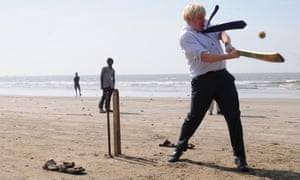
The French and German elections will be over. Eurosceptic parties will possibly have suffered because of the evident difficulties the UK is experiencing in its negotiations. The drawbacks of life outside the EU will have been clear to French and German voters.
Let’s imagine one far from implausible outcome. The EU has played hardball with the UK and the deadline for Brexit is imminent. Last-minute talks are due to start, and the British prime minister, Boris Johnson, insists he will bat for Britain through the night. With few bargaining chips at his disposal, he strikes a deal on the narrow terms of the UK exit but the future trading relationship is unclear. By default, Britain will cease to be a member of the European Union and will trade with Europe under WTO rules outside the single market, facing tariffs on exports.
This deal – such as it is – will need to be agreed by a qualified majority in the council of ministers. Any remaining UK allies in the council will be outvoted. Consent of both the European and UK parliaments will then be required, followed by ratification by member states. The UK, now outside the EU, will return to Brussels to reopen its trade talks.
It took 12 years to get into Europe and, the UK may discover, it will take just as long to get through the exit door.
Source: TheGuardian









